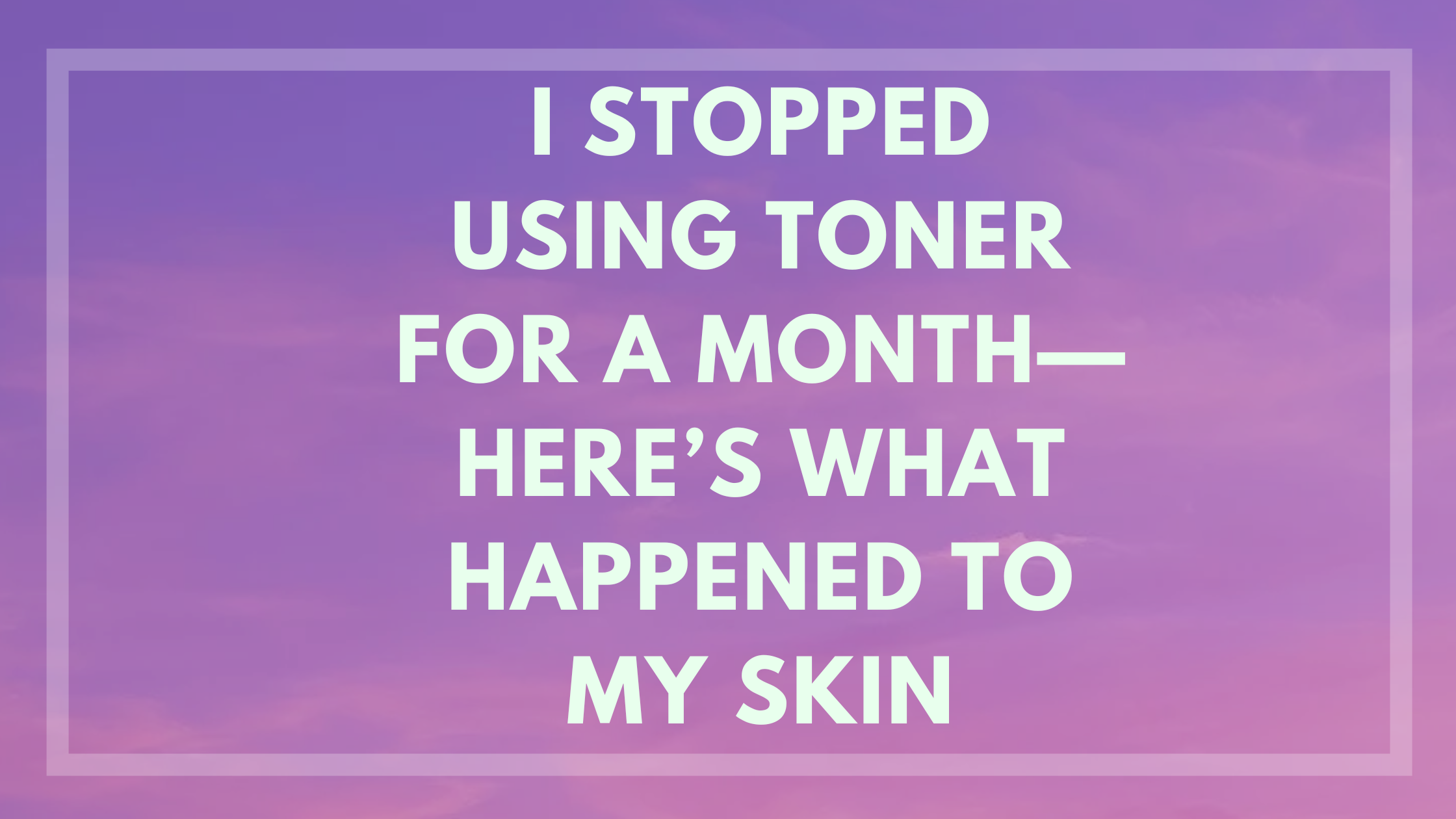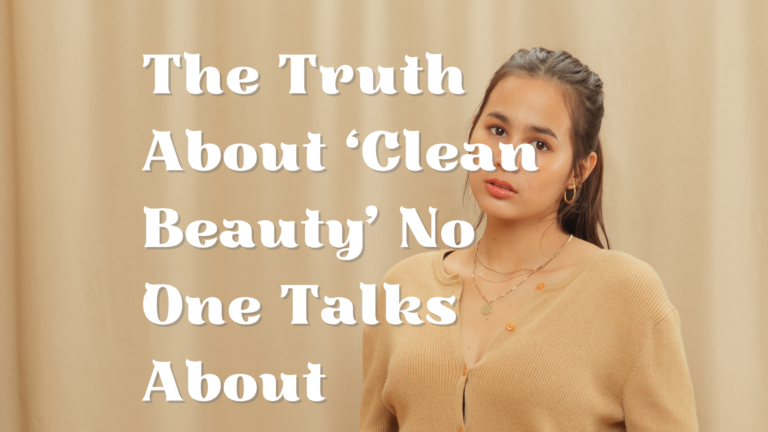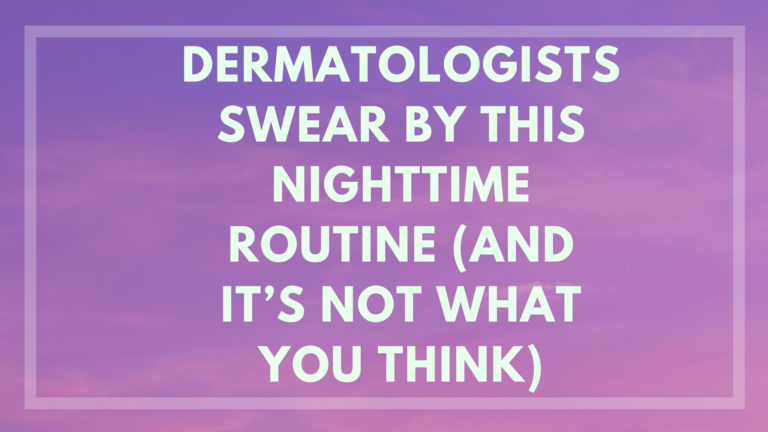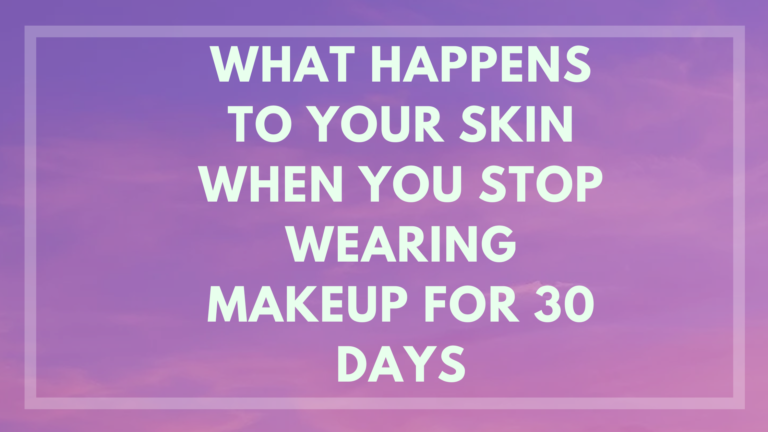Toner has been a staple in skincare routines for years. It’s often seen as a must-have step between cleansing and moisturizing. I used one every day for as long as I could remember—morning and night, like clockwork.
But recently, I started to wonder if it was really doing anything. Was toner actually helping my skin, or was it just a habit I picked up without questioning? So, I decided to stop using toner completely for one full month.
Here’s what happened to my skin, what surprised me most, and whether or not I went back to it.
Why I Used Toner in the First Place
Like many people, I started using toner because it seemed essential. I’d heard that it helped balance pH, tightened pores, removed leftover dirt, and prepped the skin for serums and moisturizers.
Over time, I tried different formulas—hydrating ones, exfoliating ones, even astringent types with witch hazel. But my skincare goals changed. My skin became more sensitive, and I started focusing on barrier repair and hydration over deep cleansing or oil control.
That shift made me question whether toner was still a necessary part of my routine.
Week 1: No Major Changes, Just a Mental Shift
In the first week, I didn’t notice anything dramatic on the surface. My skin didn’t suddenly break out, dry up, or feel unclean. If anything, my routine felt simpler and faster. But mentally, it felt odd skipping a step I’d done for years.
I focused on using a gentle cleanser, a hydrating serum, and a moisturizer with ingredients like ceramides and glycerin. I also paid attention to how my skin felt after cleansing—was it tight? Irritated? Dehydrated? The answer was no, which told me something important: my skin was doing fine without toner.
Week 2: Slight Boost in Skin Comfort
By the second week, I noticed a subtle change—my skin felt calmer, especially around my cheeks and jawline, which are usually prone to redness.
In hindsight, the toner I was using before had a light fragrance and a few botanical extracts. While those can be beneficial for some, they might have been mildly irritating my sensitive areas. Removing that step seemed to reduce flare-ups.
Week 3: Less Product, Better Hydration
During week three, I realized I wasn’t layering as many hydrating products, yet my skin still felt plump. Without toner, my skin wasn’t missing moisture.
Instead of layering multiple watery products, I relied on a single serum and a moisturizer that sealed everything in. This simplified approach helped me understand that hydration isn’t always about more steps—it’s about the right ones.
Week 4: Fewer Breakouts, Steadier Skin
By the end of the month, my skin felt more balanced. I had fewer small breakouts and less sensitivity overall.
One possible reason? Some toners—especially those with exfoliating acids—can disrupt the skin barrier if overused. Removing toner gave my skin a chance to reset and strengthen itself naturally, without extra stimulation.
What I Learned from Going Toner-Free
- Not everyone needs toner.
If your cleanser is gentle and your moisturizer is effective, you might not need a toner at all—especially if your skin isn’t oily or acne-prone. - Simpler routines can be more effective.
Cutting out toner reminded me that more steps don’t always mean better skin. It’s about quality, not quantity. - Listen to your skin, not the trends.
There’s nothing wrong with using toner if it works for you. But don’t feel pressured to include every trendy product in your lineup. Pay attention to how your skin responds, not just what the bottle promises. - Toner isn’t bad—it’s just not always essential.
Some toners can be great for exfoliation, hydration, or calming irritated skin. But if your skin is already happy and healthy, skipping it might make no difference at all.
Will I Go Back to Using Toner?
Maybe—but not every day. If I use one, it’ll be targeted, like a hydrating toner during dry winter months or a gentle exfoliating formula once a week. But I’ve learned that my skin doesn’t need toner to stay balanced, clean, and calm.
And that realization helped me build a more mindful skincare routine—one that’s focused on what works instead of just following steps for the sake of it.
Final Thoughts
Sometimes the best way to understand your skin is to take something away and see what changes. For me, taking a break from toner wasn’t just about simplifying—it was about reconnecting with my skin’s actual needs.
If you’ve ever wondered whether toner is necessary, give your skin a break and see how it responds. You might discover that less really is more.




